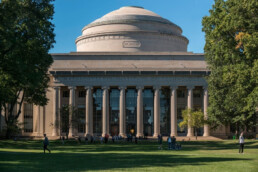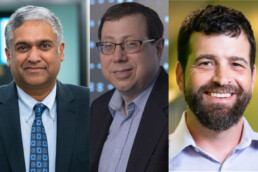Ericsson and MIT enter into collaboration agreements to research next generation of mobile networks
- Ericsson and MIT to collaborate on two major research projects on the design of state-of-the-art hardware that could one day power next generation 5G and 6G mobile networks
- Lithionics-based device research to enable neuromorphic computing, promising exponentially more energy efficient AI-algorithms than available today
- Advances in hardware could lead to “zero-energy” devices able to harvest energy directly from the received radio signal and use this energy to connect to the mobile network
As we enter a new age for electronics powered by 5G and eventually 6G, MIT and Ericsson (NASDAQ: ERIC) are collaborating on two research projects that seek to help build a new network infrastructure needed to empower the truly revolutionary use cases the next generation of mobile networks will bring.
The new mobile network generations bring ultra-fast speed, low latency, and superb reliability to the end user. However large, feature rich networks are complex structures to manage for network operators. Ericsson is working to research cognitive networks, which rely on artificial intelligence (AI) to enable a secure, highly automized, data-driven network operation. To improve the compute power, speed and energy efficiency of cognitive networks, Ericsson Research and the MIT Materials Research Laboratory are collaborating to research new designs in lithionic chips enabling neuromorphic computing, offering exponentially more energy efficient AI processing. This could enable fully cognitive networks with reduced operation complexity and energy consumption compared to today.
Photo Credit: Ericsson
MIT unveils a new action plan to tackle the climate crisis
The Institute commits to net-zero emissions by 2026, charts course marshaling all of MIT’s capabilities toward decarbonization.
MIT has released an ambitious new plan for action to address the world’s accelerating climate crisis. The plan, titled “Fast Forward: MIT’s Climate Action Plan for the Decade,” includes a broad array of new initiatives and significant expansions of existing programs, to address the needs for new technologies, new policies, and new kinds of outreach to bring the Institute’s expertise to bear on this critical global issue.
As MIT President L. Rafael Reif and other senior leaders have written in a letter to the MIT community announcing the new plan, “Humanity must find affordable, equitable ways to bring every sector of the global economy to net-zero carbon emissions no later than 2050.” And in order to do that, “we must go as far as we can, as fast as we can, with the tools and methods we have now.” But that alone, they stress, will not be enough to meet that essential goal. Significant investments will also be needed to invent and deploy new tools, including technological breakthroughs, policy initiatives, and effective strategies for education and communication about this epochal challenge.
3 Questions: Task Force 2021 and the future of MIT education
Anantha Chandrakasan and Melissa Nobles describe themes that emerged from broad discussions on teaching and learning in the post-Covid world.
MIT’s Task Force 2021 and Beyond has been at work for seven months, charged by President L. Rafael Reif with exploring “how MIT might invent a thriving new future” in a post-Covid world. The effort’s Academic Workstream, which looked specifically at the future of the MIT education, was co-chaired by Anantha Chandrakasan, dean of the School of Engineering and Vannevar Bush Professor of Electrical Engineering and Computer Science, and Melissa Nobles, Kenan Sahin Dean of the School of Humanities, Arts, and Social Sciences and professor of political science.
Chandrakasan and Nobles spoke with MIT News about the recent societal changes that are likeliest to impact teaching and learning at MIT, the themes that arose in their group’s conversations, and the changes that might arise if some of their proposals are adopted.
Three MIT faculty elected 2020 ACM Fellows
Three MIT computer science faculty members have been elected as fellows of the Association for Computing Machinery (ACM).
The new fellows are among 95 ACM members recognized as the top 1 percent for their outstanding accomplishments in computing and information technology and/or outstanding service to ACM and the larger computing community. Fellows are nominated by their peers, with nominations reviewed by a distinguished selection committee.
Anantha Chandrakasan is dean of the School of Engineering and the Vannevar Bush Professor of Electrical Engineering and Computer Science. He leads the MIT Energy-Efficient Circuits and Systems Group, which works on a variety of projects such as ultra-low-power internet-of-things devices, energy-efficient processors, machine learning processors, hardware security for computing devices, and wireless systems. He was recognized as a 2020 ACM fellow for energy-efficient design methodologies and circuits that enable ultra-low-power wireless sensors and computing devices.



